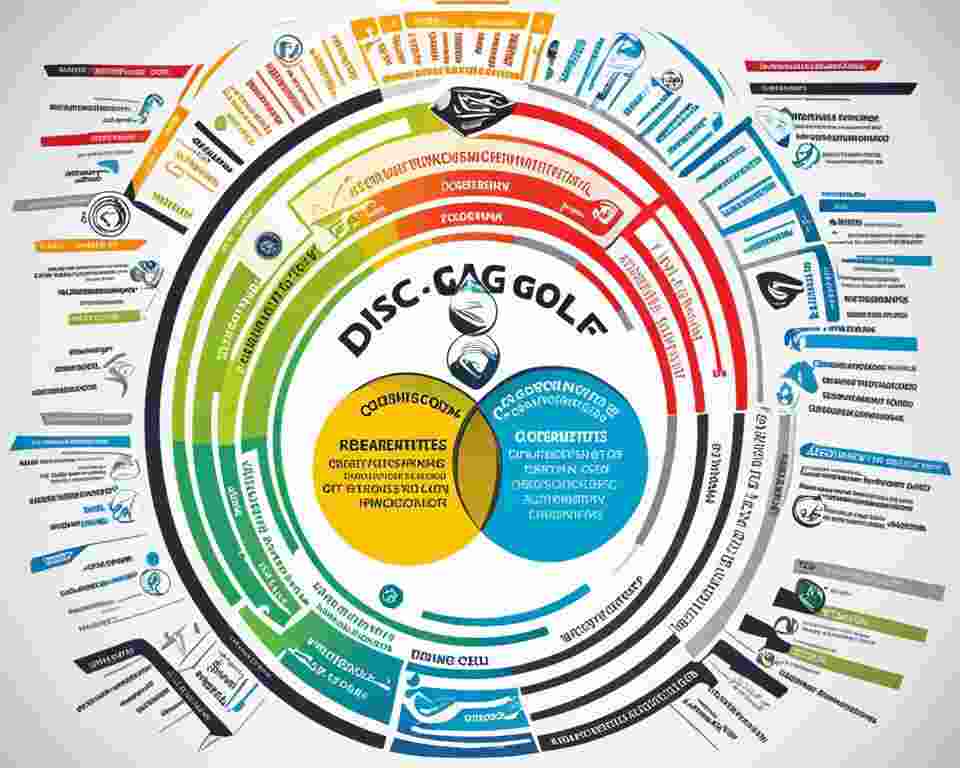Ever wondered who shapes the rules in the exciting world of disc golf? The governing body plays a crucial role—establishing rules, organizing tournaments, and promoting growth. As disc golf’s popularity grows, a governing body is vital for fair play, setting guidelines, maintaining rankings, and fostering global development.
In the following sections, we’ll explore the existence and functions of the Professional Disc Golf Association (PDGA), the global impact through the International Disc Golf Federation (IDGF), including the overarching role of the World Flying Disc Federation (WFDF), and the contributions of local and national disc golf associations.
Get ready for a quick dive into how the disc golf governing body influences the sport worldwide.
Key Takeaways:
- The World Flying Disc Federation (WFDF) is the global governing body, regulating, setting rules, and organizing tournaments to ensure fair play and drive continuous development in disc sports worldwide.
- The Professional Disc Golf Association (PDGA) oversees disc golf governance, ensuring consistency and fairness within the sport.
- The International Disc Golf Federation (IDGF) promotes global disc golf recognition and growth.
- Local and national disc golf associations actively contribute to the sport’s grassroots growth and organization, fostering community and camaraderie among players.

Does disc golf have a governing body
In any sport, the presence of a governing body is crucial to maintain fairness, consistency, and integrity. A governing body establishes the rules and regulations, sets standards for competitions, and ensures that players and organizations adhere to them. When it comes to disc golf, the sport does indeed have a governing body.
The Role of a Governing Body in a Sport
The importance of a governing body in sports cannot be overstated. Its role extends beyond rulemaking and enforcement. A governing body plays a pivotal role in various aspects of the sport:
- Establishing standardized rules and regulations that ensure fair play and consistent competition.
- Organizing and sanctioning tournaments, providing a platform for players to showcase their skills and compete.
- Promoting the growth and development of the sport by implementing initiatives and programs to attract new players and sponsors.
- Providing guidance and support to players, ensuring they have access to resources and opportunities to improve their skills.
- Protecting the integrity of the sport by addressing and resolving issues such as cheating, doping, and misconduct.
By fulfilling these roles, a governing body like the PDGA plays a vital role in ensuring the fairness, integrity, and growth of disc golf as a sport.

Overview of Disc Golf and Its Global Expansion
Disc golf, a rapidly growing sport, has experienced a remarkable rise in popularity and global expansion in recent years. Combining the elements of traditional golf with the thrill of Frisbee throwing, disc golf offers a unique and accessible outdoor activity for people of all ages and abilities.
With its origins dating back to the 1960s, disc golf has evolved into a globally recognized sport played by millions of enthusiasts around the world. The simplicity of the game, the affordability of equipment, and the ease of setting up courses have been key factors contributing to its widespread appeal.
The International Disc Golf Federation (IDGF) and the Professional Disc Golf Association (PDGA) have played crucial roles in promoting and facilitating the global expansion of disc golf. The IDGF serves as the international governing body for the sport, working to develop standardized rules, organize international competitions, and foster the growth of disc golf in different countries.
The PDGA, as the leading authority in disc golf, focuses on the organization and development of the sport at the professional level. With a strong emphasis on player rankings, tournament sanctioning, and the establishment of course standards, the PDGA has been instrumental in elevating the competitiveness and professionalism of disc golf.
One of the key factors behind the rise in popularity of disc golf is its accessibility. Unlike traditional golf, disc golf courses can be set up in various terrains, including parks, forests, and urban areas. This allows players to engage with the sport in diverse environments, making it more accessible to a wider range of individuals.
The inclusive nature of disc golf also contributes to its accessibility. Players of all ages and abilities can participate, whether they are professional athletes or casual recreational enthusiasts. Disc golf provides a low-impact physical activity that promotes fitness, mental acuity, and social interaction.

Disc Golf Organizations and Their Roles
Various organizations are instrumental in shaping the landscape of disc golf, ensuring its growth, governance, and promotion. Four key entities, including the Professional Disc Golf Association (PDGA), the International Disc Golf Center (IDGC), local and national disc golf associations, and the World Flying Disc Federation (WFDF), collaborate to foster the sport’s development.
Professional Disc Golf Association (PDGA) As the Leading Authority
The Professional Disc Golf Association (PDGA) serves as the leading authority in the sport of disc golf. It is responsible for establishing and enforcing rules and regulations, sanctioning tournaments, and promoting the growth and development of professional disc golf. The PDGA’s role is crucial in maintaining fairness and consistency in the sport, ensuring a level playing field for all players.
Oversight by the International Disc Golf Center (IDGC)
The International Disc Golf Center (IDGC) provides oversight and support for disc golf at the international level. Located in Appling, Georgia, the IDGC is a hub for disc golf education, research, and development. It serves as a resource center and training facility for players, tournament organizers, and disc golf enthusiasts worldwide. The IDGC plays a vital role in advancing the sport and enhancing its global reach.
Contribution of Local and National Disc Golf Associations
In addition to the PDGA and the IDGC, local and national disc golf associations contribute significantly to the growth and organization of disc golf. These associations operate at grassroots levels, organizing local events, running leagues, and maintaining disc golf courses. They play a crucial role in building the disc golf community, introducing newcomers to the sport, and fostering a sense of camaraderie among players.
World Flying Disc Federation (WFDF): A Global Perspective on Disc Sports
Expanding our lens globally, the World Flying Disc Federation (WFDF) emerges as the overarching international governing body for disc sports. Recognized by prominent sporting bodies, including the International Olympic Committee and the International Paralympic Committee, WFDF oversees various flying disc disciplines, including disc golf.
Its responsibilities include sanctioning world championships, establishing uniform rules, and promoting the spirit of fair play. As a not-for-profit entity, WFDF contributes significantly to the global discourse and development of flying disc sports.

| Organization | Role |
|---|---|
| World Flying Disc Federation (WFDF) | Global governing body, regulating, setting rules, and organizing tournaments to ensure fair play and drive continuous development in disc sports worldwide. |
| Professional Disc Golf Association (PDGA) | Establishing and enforcing rules, sanctioning tournaments, promoting professional disc golf. |
| International Disc Golf Center (IDGC) | Oversight, support, and advancement of disc golf at the international level. |
| Local and National Disc Golf Associations | Organizing local events, maintaining courses, fostering community engagement. |
Conclusion
In conclusion, the disc golf governing body, represented by the Professional Disc Golf Association (PDGA) and supported by the International Disc Golf Center (IDGC) and local/national disc golf associations, plays a vital role in the regulation, development, and promotion of the sport.
The PDGA, as the leading authority in disc golf, establishes and enforces rules, sanctions tournaments, and supports the growth of professional disc golf. The IDGC provides oversight and assistance at the international level, ensuring consistency and collaboration among disc golf organizations worldwide. Additionally, local and national disc golf associations contribute to the growth and organization of the sport in their respective regions, fostering community participation and engagement.
By setting and maintaining standards, the disc golf governing body ensures fair and competitive play, ultimately enhancing the overall experience for players and fans alike. Their collective efforts have contributed to the global growth and accessibility of disc golf, making it an inclusive and enjoyable sport for people of all ages and abilities. As the sport continues to gain popularity, the disc golf governing body will continue to play a crucial role in shaping its future, supporting the development of new players, and expanding the reach of the sport to new regions and communities.


